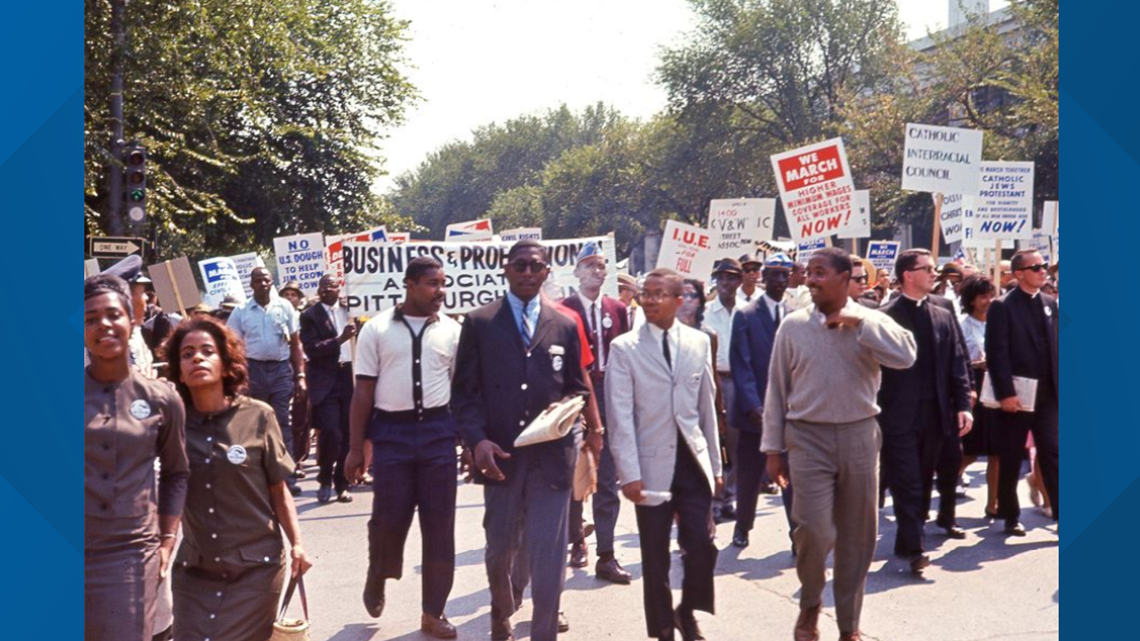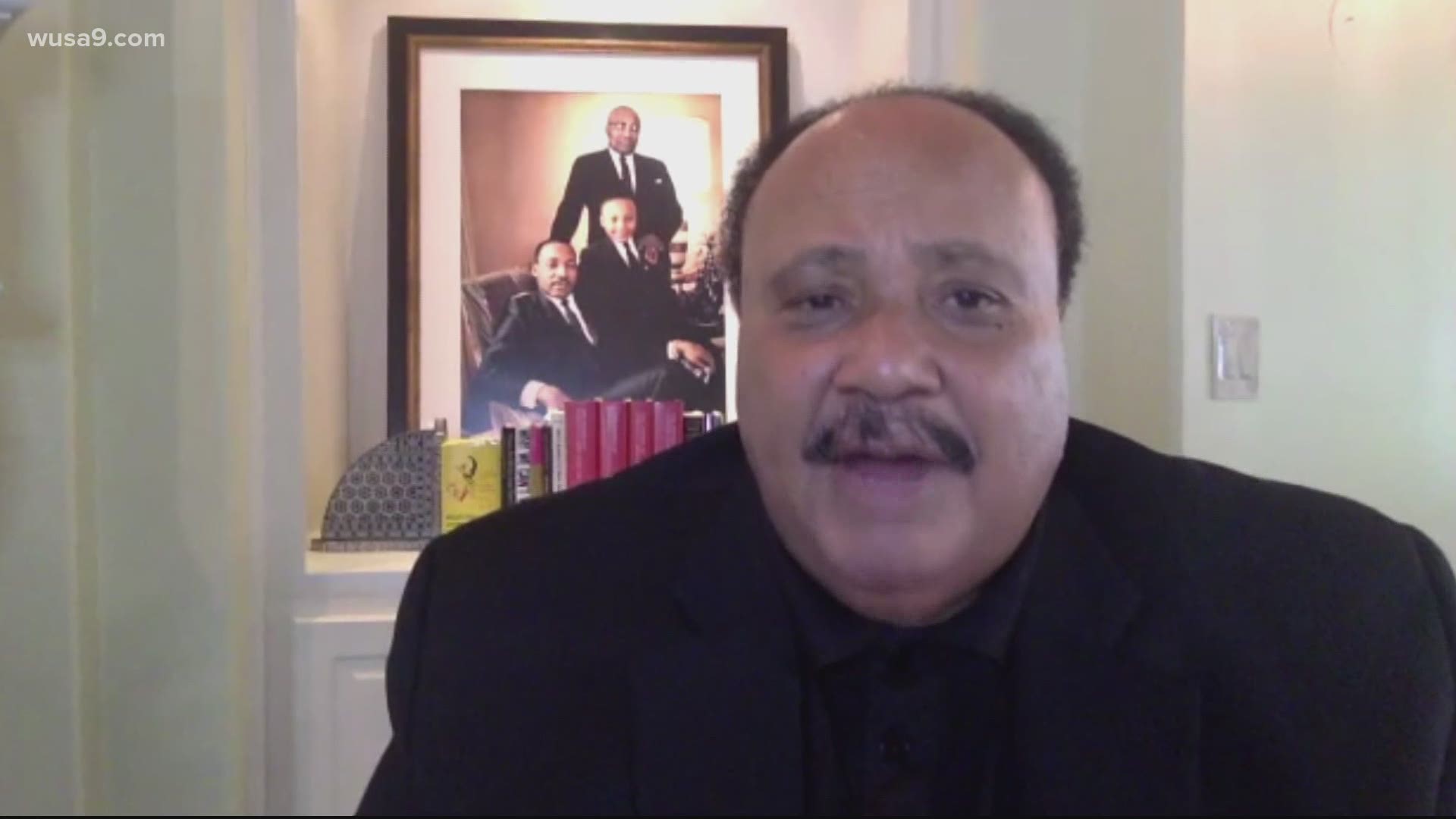WASHINGTON — He is the son of a civil rights icon and carries his spirit wherever he goes. Martin Luther King III has been a voice for the people, just like his father. As one of the organizers behind Friday's March on Washington, King shares a message of hope and call to action.
Martin Luther King III was only 10 when his father, Dr. Martin Luther Jr. was assassinated, but he will always remember the values his father instilled him.
King III recalls traveling with his dad on a few occasions. He enjoyed watching him speak. He said one thing that always stood out was the way he showed compassion and love for others.
"The hope that I got and derived from my father came from just watching him interact with people," King III said. "He always made time for everyone in the crowd and it did not matter who you were."
"It was a personification of a genuine desire to help and make a difference, and I think that's what he instilled in me, he added.
Like his father, King III has always been an advocate for human rights and an agent for social change. As one of the leaders of Friday's "Get Your Knee off Our Necks" March on Washington for police reform, it is King's hope that people will take action this November by voting and that pressure will increase on lawmakers to pass legislation that will help combat the issue of police brutality.
When more than 200,000 people marched on Washington 57 years ago, it was for jobs and freedom. Today, that focus has shifted.


"We have got to learn how to apprehend suspects without shooting them or doing harm to them," he said. "There’s something wrong with that."
"This does not happen in every community, but we see this over and over and over again happening to black folks and in communities of color," he said. "Enough is enough and the community is saying we’re going to do something about this."
King said he does not believe Friday's march would have to focus on police reform if his father was living.
"We would not be addressing these issues, we would be addressing new issues or different issues," he said. "I believe my father would be telling us about the importance of participating in this election and every election after this."
"He always said a voteless people is a powerless people and one of the most important steps we can take is that short step to the ballot box," he explained.
When protests erupted throughout the country and around the world, in the wake of the deaths of George Floyd, Breonna Taylor and others who died at the hands of police, demonstrators of all ages and ethnicities took a stand. King said he was especially impressed with the young people who give him hope.
"I’m very excited about the activism of young people and we feel very blessed, my wife and I to have a daughter who’s engaged in the struggled for righteous and justice," he said.
His daughter, Yolanda spoke about a gun-free world in March for Our Lives, a 2018 student-led demonstration that called for legislation that would prevent gun violence.
When asked what he would tell people who have lost faith in humanity and trust in police, he said we have to encourage each other.
"We have to help lift each other up, change this climate, create what my father would call the beloved community and change will come," he said. "That is what I would say to anyone who has lost hope."
The March on Washington of 1963 has been credited with getting laws like the Civil Rights Act of 1964 passed. Currently, George Floyd Justice in Policing Act 2020 and the John R. Lewis Voting Rights Act 2020 are stalled by Senate. King hopes the march will put pressure on lawmakers to pass it.
So where do we go from the 2020 March on Washington?
"We have to write our senators, by tweeting, emailing, Instagramming," he said. "We need to be lobbying in a sense or writing our congresspersons and senators saying we want legislation, not yesterday, not tomorrow but right now so that humankind is treated in a fair and just way."

